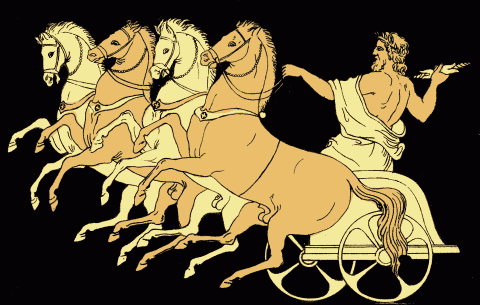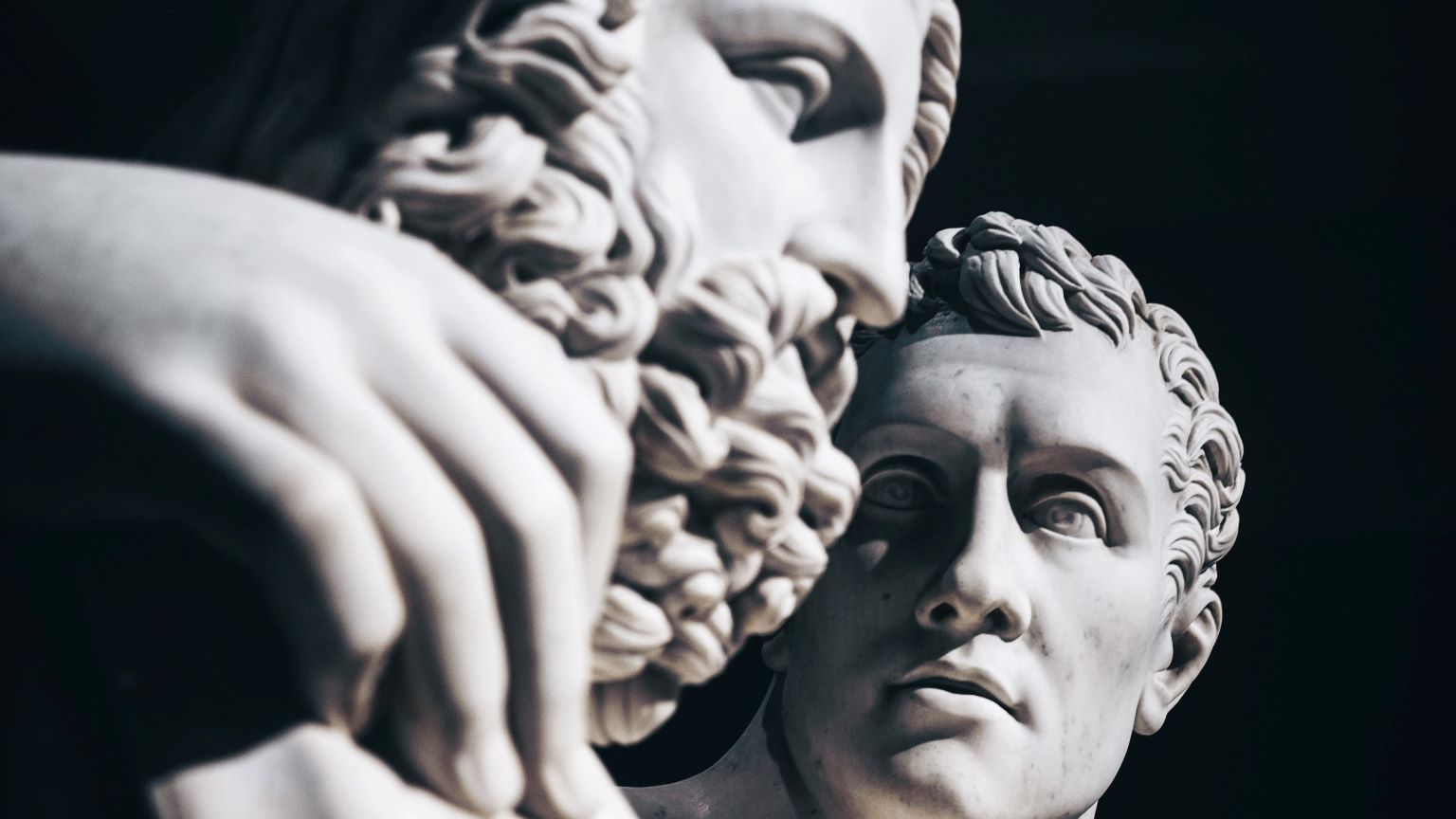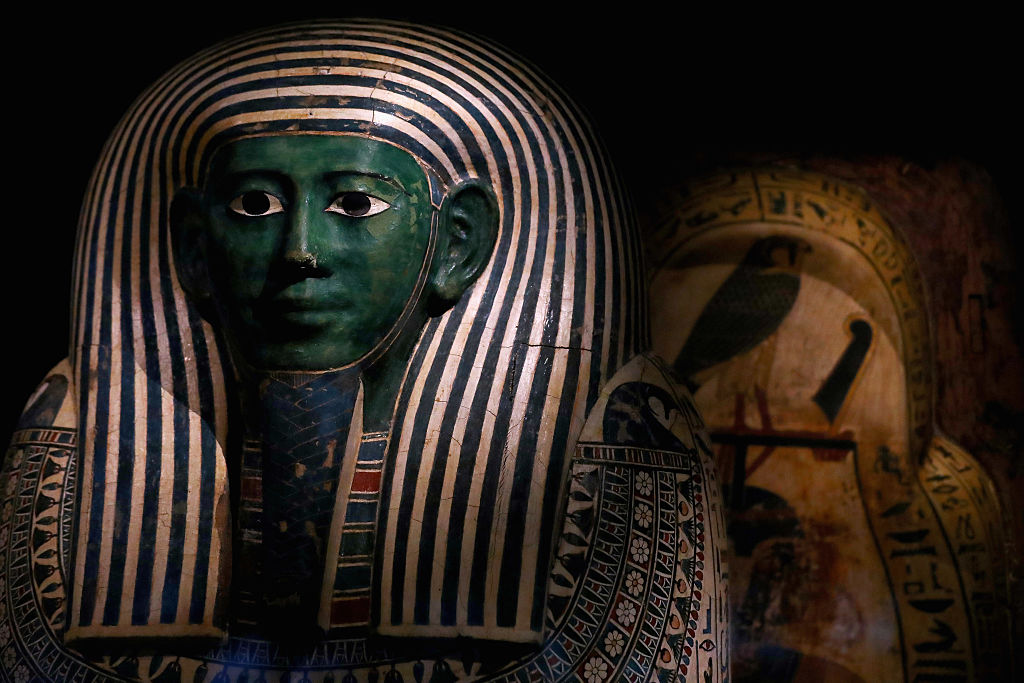W. H. Auden and the Comedy of Human Suffering

“What is so distasteful about the Homeric gods,” W. H. Auden complains in his essay “The Frivolous & the Earnest,”
is that they are well aware of human suffering but refuse to take it seriously. They take the lives of men as frivolously as their own; they meddle with the former for fun, and then get bored.
Unlovable as the gods can be, this isn’t quite fair to them. Plenty of evidence in the Iliad and Odyssey contradicts the charge of heartlessness: Zeus, Hera, and the rest take pity on mortals at least as often as they harass them, and far more often than they view human suffering with detachment. A lot depends on their mood (Zeus is notoriously mercurial) and character (Athena, for example, runs more errands of mercy than Ares). But in general, they have an undeniable capacity for decency; they’re just selective and inconsistent in applying it. What seems to bother Auden is not that the Homeric gods are “frivolous” but that they’re no more or less so than we are.
How does all of this bear on Auden’s own poetry? Throughout his career, Auden strove to stay morally engaged with, rather than aesthetically detached from, the wars and genocides of the twentieth century. Because these were immediate rather than historical crises, Auden had a tough line to walk. He wanted to save mankind but also save his work from the trash heap, to address contemporary fears with both urgency and permanence.
Sometimes he failed; sometimes he succeeded brilliantly; sometimes he succeeded famously but not fully. A few well-known poems by Auden are outstanding in almost every respect, except that they’re a little too preachy for my taste. I’m thinking particularly of “Spain 1937” and “September 1, 1939” (both of them literally dated, both of them poems with which Auden himself was later unhappy), as well as “The Shield of Achilles,” which engages with Homer directly.
“The Shield of Achilles” turns on an expertly orchestrated parallel between the Homeric and the modern world, whereby modern war is shown to have sapped our culture of the vitality depicted on Achilles’ elaborate shield. In fact, it has produced a dystopia (often a red flag signaling didacticism) in which bureaucracy is overbearing, the public can’t or won’t stop state-sponsored violence, and “iron-hearted man-slaying Achilles”—the flower of heroic youth—“[will] not live long.”
In this closing line, Auden seems to repeat the Iliad without quite revising it. That Achilles is doomed to die young as a consequence of war is already one of the tragedies of Homer’s epic: Auden just laments it more earnestly, without providing a comparably broad backdrop of human affairs against which the tragedy is to be judged. If his intent is to portray the Greek warrior code as hollow in the face of mass slaughter, I’d argue that Homer himself does a subtler job of suggesting that possible interpretation. (The Iliad ends on a note of extended lamentation, and never even narrates the Greeks’ “triumph” through to its conclusion.)
In some of his political poems, then, Auden could be a benevolent but slightly sanctimonious god. In others he could be human, and a genius.
Throughout “The Fall of Rome,” one of my favorite poems of any kind, he again orchestrates a synthesis between classical and modern Western civilization—framed here as more decadent than dystopic—but this time allows both his imagination and sense of humor free rein. From the unforgettable clerk who “writes I DO NOT LIKE MY WORK / On a pink official form” to the distant birds who “eye each flu-infected city,” the imagery—beneath its drumbeat of the sinister—is mercilessly funny, echoing the anarchic, insubordinate, and misanthropically detached side of Auden himself. The pressure of wit keeps the verse lively and taut, restraining “political Auden” from his tendency toward long-windedness. At the end, the poet’s imagination makes a grand leap, whisking us “altogether elsewhere”:
Altogether elsewhere, vast
Herds of reindeer move across
Miles and miles of golden moss,
Silently and very fast.
The absurd irrelevance with which this image startles us turns out to be our own. At the same time, Auden almost comforts us, lifting our eyes from our civilization’s petty problems toward the larger scheme of things. And yet an almost identical shift occurs in the Iliad passage he quotes, disapprovingly, in “The Frivolous and the Earnest”:
When Zeus had brought the Trojans and Hector close to the ships, he left them beside the ships to bear the toil and woe unceasingly, and he himself turned his shining eyes away, gazing afar at the land of the horse-rearing Thracians… (Iliad, Book Eight)
This is not, as Auden claims, Zeus “get[ting] bored.” Instead, it’s Zeus recognizing—like Homer, like Auden himself—that human suffering has a global context, the full scope of which we need to glimpse before we can truly see the suffering itself.




